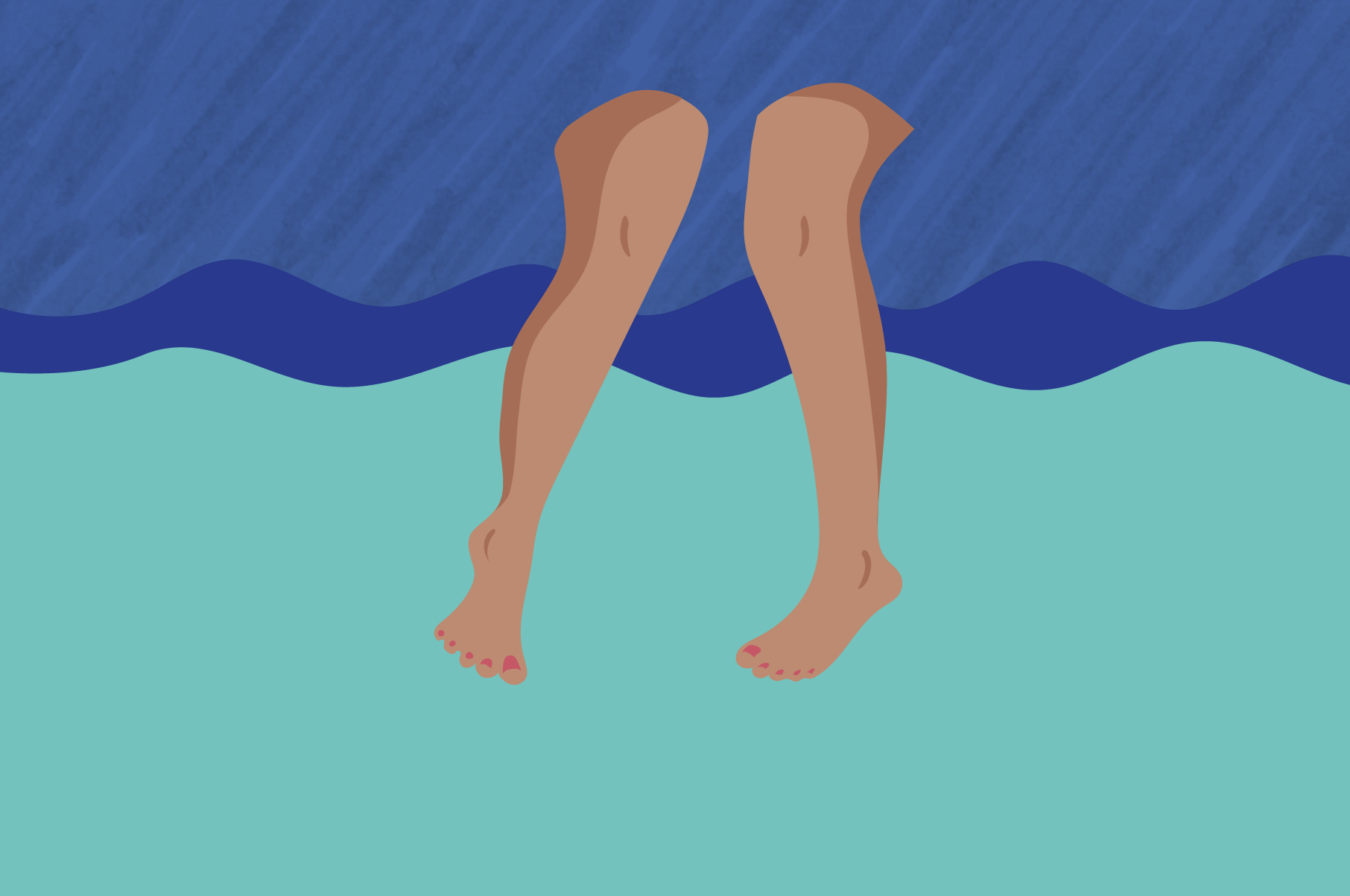How to Handle Crotch Sweat

by Brianna Flaherty
If you’re already experiencing perimenopause or menopause, excessive sweating below the belt can feel like salt in the wound of uncomfortable symptoms like hot flashes, night sweats, and vaginal dryness. Crotch sweat is definitely as unpleasant as it sounds, but figuring out why moisture is building up in the groin area in the first place can help get to the root of the problem. We talked to a pelvic health OT, Lindsey Vestal, about all the tips and treatments out there to help you with excessive groin sweat, so you can beat the heat.
why crotch sweat happens
Wearing too many layers or fabrics that don’t breathe very well can amplify sweat in a part of your body that (not unlike an armpit) consists of hair follicles and sweat glands concentrated in a warm, bacteria-filled area. Like your armpits, it’s bound to get a little too damp down there from time to time. Groin sweating is completely normal, as there are eccrine sweat glands on most areas of skin, including the groin area. If you have excessive underarm sweating, it is more likely for other areas with hair follicles and sweat glands to also have excessive perspiration.
Plus, excess discharge or bladder leaks can add to the sweaty feeling people often experience. Unless you notice body odor or start to feel itchy, discharge is nothing to worry about. But, while urine is technically sterile, it doesn’t necessarily stay that way once it exits your body. Like any other liquid, it can act as a transportation system for all kinds of bacteria, leading to UTIs, yeast infections, skin conditions, skin infections, or bacterial vaginosis — all of which Lindsey says become more likely in sweaty summer months. So, no matter the source of moisture, it’s always a good idea to keep things dry, especially if you experience excessive groin sweat or hyperhidrosis. The good news is that there’s more than one solution:
wear breathable fabric
Cotton undies and breathable underwear are a given for combating crotch sweat, but don’t underestimate the power of cotton or linen outfits, which can help your whole body stay cooler longer. If breathable fabrics aren’t an everyday option, try stocking your closet with skirts, dresses, or loose-fitting shorts for extra sweaty summer days. You definitely want to skip on leggings or any tight clothing that may cause excessive sweating or a rash.
skip shaving
Pubic hair creates a barrier — or, more accurately, a breathing space — between your vulva and your underwear. It’s a built-in ventilation system to keep sweat (and everything swimming in it) at bay. That said, if you’re navigating sweat down there daily, a full bush can actually hold moisture in and take longer to dry out. In that case, trimming a bit can actually help your pubic hair dry out faster when moisture builds up. Overall, though, pubes are good to keep around as your body’s natural system for wicking away excess liquid.
try talcum powder
Talcum powder is an option, but Lindsey says it shouldn’t be your everyday solution for groin sweat. Talcum should be reserved for that annual heat wave or long, un-air conditioned car ride in the middle of summer that you just can’t skip. If you do opt for talcum, pick a cornstarch-based powder— studies increasingly suggest a link between ovarian cancer and talcum powders that contain asbestos, so a cornstarch base is a much safer option that’s just as effective at keeping you fresh and dry.
hydrate strategically and opt for cooling foods
Proper hydration will help you manage crotch sweat, excessive sweating, body odor, and overall skin health. It's also equally important to choose foods that don't exacerbate sweating. During warmer months when hot flashes and night sweats may be more prevalent, try to avoid spicy foods, caffeine, and alcohol. Instead, reach for hydrating foods like watermelon and cucumber which are known to help regulate body temperature and reduce the likelihood of excessive sweating. This approach not only helps address the physical discomfort you feel in the inner thigh and groin area but also supports mental health by promoting a sense of freshness and well-being.
Staying mindful of your dietary choices can contribute to a healthier balance of eccrine sweat glands, reducing the risk of excessive perspiration and moisture buildup in the groin area. This, in turn, can minimize the chances of developing unpleasant odors and the associated concerns of vaginal odor.
have a back-up plan
Lindsey says it’s a good idea to have a spare pair of underwear on hand for particularly hot or humid days. If you wear moisture-wicking undies you might be able to get away with just one pair a day, but it doesn’t hurt to have extras in your bag.
How do you get by in the summer months? Share your tips in the comments.
At Thinx, we strive to provide our readers with the most up-to-date, objective, and research-based information. Our content is crafted by experienced contributors who ground their work in research and data. Articles contain trusted third-party sources that are either directly linked within the text or listed at the bottom to lead readers to the original source.
Posted: July 31, 2019
Related Articles
one new subscriber wins a free pair of Thinx every day! see rules


